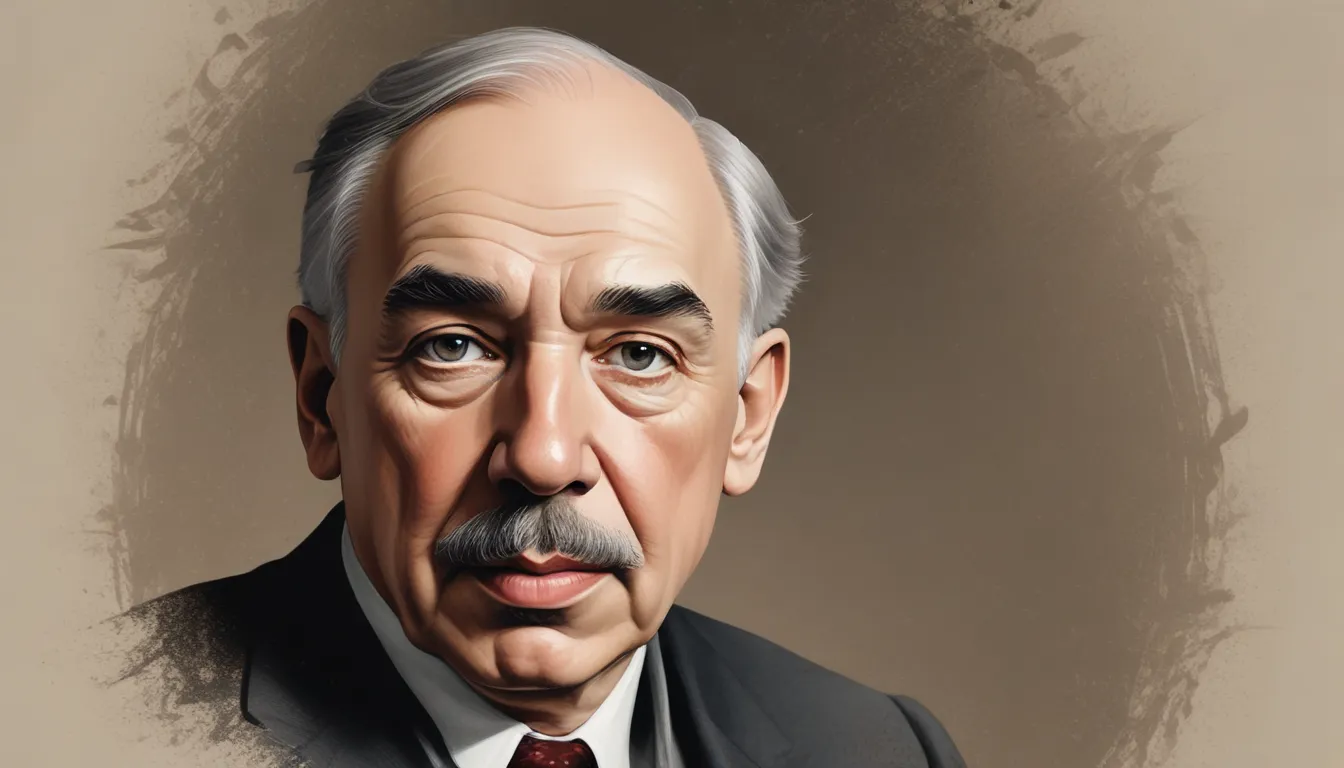The images in our articles may not match the content exactly. They are used to grab your attention, not to show the exact details in the text. The images complement the text but do not replace it.
John Maynard Keynes, a legendary figure in the world of economics, is often hailed as the pioneer of Keynesian economics. His groundbreaking ideas have revolutionized economic policies and continue to shape our understanding of modern economics. However, delving deeper into the life of Keynes reveals a myriad of intriguing and lesser-known facts that paint a more comprehensive picture of this influential figure. In this article, we will uncover 10 unbelievable facts about John Maynard Keynes that offer valuable insights into his life, contributions, and lasting impact on global economics.
Unveiling the Enigmatic Persona of John Maynard Keynes
- John Maynard Keynes was not just an economist: He was a prolific writer, arts lover, and influential advisor to governments, leaving a lasting impact on economics and global policy-making.
- Keynes’ legacy transcends economics: Shaping arts, literature, and politics, his forward-thinking ideas and multidimensional personality continue to influence the world today.
The Writer Behind the Economist
Keynes’ intellectual prowess extended beyond economics, showcasing his talent as a skilled writer. His most famous work, “The General Theory of Employment, Interest, and Money,” revolutionized economic thought and remains a cornerstone of economic literature. As a prolific writer, Keynes explored a diverse range of topics, from economics to philosophy and politics, solidifying his reputation as a formidable intellectual force.
A Connoisseur of the Arts
Beyond his economic endeavors, Keynes displayed a deep passion for the arts. An avid collector of artwork, he also nurtured a keen interest in literature and music. His contributions to the establishment of the Cambridge Arts Theatre and the Arts Council of Great Britain underscored his dedication to promoting and fostering cultural endeavors.
The Bloomsbury Maestro
As a prominent member of the Bloomsbury Group, an influential collective of intellectuals and artists, Keynes engaged in lively discussions and collaborations with renowned figures such as Virginia Woolf and E.M. Forster. The intellectual exchanges within the Bloomsbury Group played a pivotal role in shaping cultural and artistic movements of the early 20th century.
Architect of International Economic Cooperation
In response to the aftermath of the Great Depression, Keynes advocated for global economic cooperation and stability. His pivotal role in the Bretton Woods Conference in 1944 laid the groundwork for the establishment of the International Monetary Fund (IMF) and the World Bank. Keynes’ vision and expertise were instrumental in shaping the trajectory of international economic policies.
The Economic Advisor Extraordinaire
During World War II, Keynes served as an economic advisor to the British government, implementing policies rooted in Keynesian economics to stabilize and stimulate national economies. His advocacy for government intervention to maintain economic stability left an indelible mark on economic policies adopted worldwide.
Master of Investments
Beyond his theoretical contributions, Keynes showcased his financial acumen as a successful investor. Managing the endowment fund of King’s College, Cambridge, he demonstrated a keen understanding of market trends and investment strategies, further solidifying his reputation as a multifaceted and astute individual.
Voice of Dissent at Versailles
Following World War I, Keynes participated as part of the British delegation at the Treaty of Versailles negotiations. His dissenting views on the harsh terms imposed on Germany, outlined in his seminal work “The Economic Consequences of the Peace,” challenged prevailing post-war policies and reshaped public perception of economic diplomacy.
Advocate for Economic Stability
In an era marked by escalating unemployment rates, Keynes championed economic policies designed to achieve full employment. Proposing government intervention through fiscal and monetary measures to stimulate demand, Keynes laid the groundwork for Keynesian economics, a framework that continues to influence economic policy-making.
Champion of the Arts
Keynes’ commitment to the arts extended beyond personal interest, culminating in his appointment as the first chairman of the Arts Council of Great Britain. His enduring efforts in cultural development and promotion significantly contributed to the enrichment of arts and culture in post-war Britain.
Unveiling the Legacy of John Maynard Keynes
In conclusion, John Maynard Keynes’ impact on economic theory and policy is unparalleled. His revolutionary insights into macroeconomic management and government intervention have left a lasting imprint on modern economics. Keynes’ enduring legacy persists in the ongoing debates and practices surrounding economic policy-making, underscoring his status as one of the most influential figures in economic history.
FAQs: Unraveling the Mysteries of Keynesian Economics
- Key ideas of John Maynard Keynes: Keynesian economics emphasizes the importance of aggregate demand and government intervention in stabilizing the economy.
- Keynes’ departure from classical economics: Keynes diverged from classical economists by advocating for government intervention to address economic instability.
- Keynes on deficit spending: Keynes supported deficit spending as a means to stimulate economic growth during downturns.
- Keynes’ influence on the Great Depression: Keynes’ theories influenced government policies aimed at boosting aggregate demand during the Great Depression.
- Legacy of John Maynard Keynes: Keynes’ legacy resides in his enduring impact on economic theory and policy, shaping modern economic thought.
Unveiling the remarkable facets of John Maynard Keynes’ life sheds light on the remarkable breadth of his influence and the enduring relevance of his ideas in shaping the landscape of modern economics. As we traverse the intricacies of economic theory and policy, Keynes’ legacy serves as a guiding beacon, illuminating the path toward sustainable economic growth and stability.






